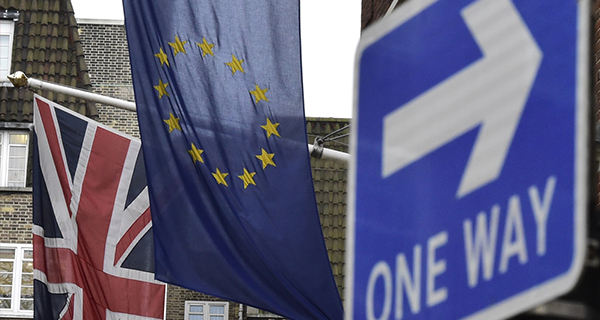
By Julia Illenberger
Out! Last Thursday, 51,9 % of British people have voted for the Brexit. What would be the consequences for the food and beverage industry?
STILTON AND SCOTCH EXPORT – Britain’s departure from the European Union necessarily means a renegotiation of every trade agreement, it will bring new tariffs and trade issues and the UK might lose EU protection on native British foods like Stilton or Scotch.
POUND DEVALUATION – Among Brexit uncertainty, Britain’s pound has fallen sharply, at around $1.320 on Monday (-12% since the Brexit). According to Goldman Sachs, it might loose 20% of its value. Concretely, it will penalize the EU exports toward the British market that represents 10% of intra-Union exports. We will still be able to buy toffee pudding in our supermarkets, but it might cost more, depending on the future trade agreements.
WHO WILL BE THE MOST AFFECTED? – Countries that have tight commercial relations with the UK: Ireland, Netherlands, France, Luxembourg, Belgium, Sweden, Malta and Cyprus. After the exit from the EU, UK would no longer have automatic access to the EU Single Market and it could pay custom fees to access key European markets. The food & beverage sector might see an increase of 5% in tariff barriers. One of the most affected industry will probably be confectionery. Indeed, its volumes are forecast to fall faster than any other food category since UK consumers are the second largest purchaser among EU members in 2015, behind Belgium.

GB LARGELY DEPENDS ON IMPORTS FOR FOOD – EU food regulations demand high safety standards and dictate labelling information on food packaging for their member states. The British government would have to decide whether the UK needs their own regulations to replace the EU’s. Great Britain largely depends on imports for food as it only produces about 60% of the food consumed in the UK. Also, more than a quarter of their supply comes from other EU countries with nearly 40% of fruits and vegetables being imported from European neighbours. Overall, the UK is still importing a lot more food from the EU than it exports towards it.
POSSIBLE TRADE SCENARIOS – Experts see several trade scenarios for the Brexit. One possibility could be a free trade agreement with the EU, which would be a way to avoid duties or taxes. However, it will come with the high political cost of liberal policy for labour migration (main opposition of Brexit voters). Other scenarios include bilateral trade agreements with the EU, which would require customs and duties to be paid. There is no certain outcome for trade – as David Cameron said Brexit is “a leap into the unknown”-, but an increase of costs in some way seems inevitable for manufacturers. These costs would certainly be passed on to consumers, resulting in higher prices for food and drinks in the UK. Whether customs and taxes will apply or administrative barriers require further investments, trade may not be as easy as it currently is. The biggest cost will probably be the cost of uncertainty for the next months.

